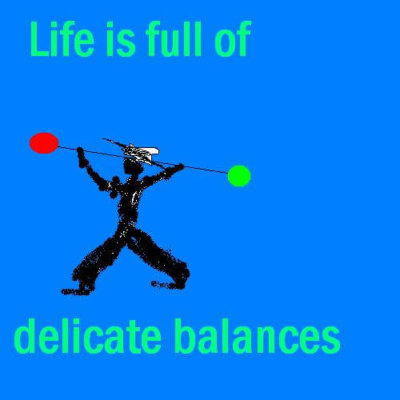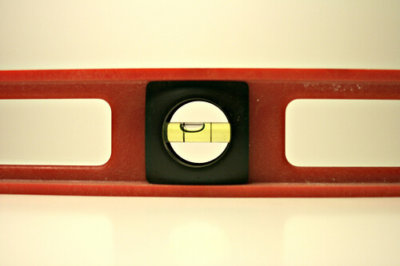What is Dialectical Behaviour Therapy (DBT)?
By: HomeSpot HQ
Dialectic behaviour therapy (DBT) is a relative newcomer to the talk therapy scene, but one that is already evidence-based (proven by research to be effective) even in cases where other forms of therapy have not worked.
What is dialectical behaviour therapy?
“My main goal for people coming to therapy is that they get out of hell. And my second goal is that they stay out of hell…. The idea is that if you can build a life that you experience as worth living, you’ll keep living. And you’ll stay out of hell”. -Marsha Linehan, PhD, creator of dialectic behaviour therapy
DBT is a longer-term psychotherapy that has the aim of helping you create a life that you feel is meaningful and want to be in. It believes the way to do this is by finding the right equilibrium between acceptance and change.
That’s why it is called ‘dialectic’ therapy. Dialectic is a term that refers to two things that seem contradictory, but can work together.
A DBT therapist starts with the assumption you are doing the very best you can in life. It’s just that you haven’t learned the behaviours you need to manage well. DBT focuses on helping you identify and stop the behaviours that are holding you back and then instead using new ones that can make life easier. It essentially ‘holds your hand’ as you try out these new ways of being, integrating them more and more into your daily life.
What issues can DBT help me with?
DBT was originally developed for people with repetitive bouts of suicidal impulses and a diagnosis of borderline personality disorder (BPD) who were not responding to other forms of therapy.

By: Robert Nunnally
Research studies now show DBT is useful for other issues, generally those that involve troubles with regulating your emotions. It’s now shown useful for:
How does DBT work?
DBT is a very structured, thorough, and interactive therapy that is quite different than other forms of therapy.
There are four parts to what DBT teaches, which are:
- Emotion Regulation (how to change your emotions)
- Distress Tolerance (how to handle emotional pain)
- Mindfulness (how to be fully present to life and your real thoughts and feelings)
- Interpersonal Effectiveness how to communicate your needs and set boundaries without ruining relationships or upsetting yourself).
Another thing worth mentioning here about DBT is it’s very much about finding balance.
If you have BPD, you might have spent your life feeling way out of balance and like you are living on a diet of extremes. This can look like really emotional vs numb, in big fights vs in love, totally happy vs totally despondent. DBT helps you find the places in between. It looks at strategies to accept your passionate feelings but also be logical, and to manage the needs of those you value while also meeting your own.
How is DBT different than other forms of therapy?
Whereas some forms of therapy are just about showing up and talking (hence the term ‘talk therapies’) DBT is very interactive. A bit like cognitive behavioural therapy (CBT), you have things to study, homework to do, and new skills to test out and report back on.

By: rochelle hartman
It’s not just one-on-one.
It’s possible to work on the components of DBT just in individual sessions. But if you are following a standard DBT program, you will also be attending weekly group sessions with other people learning DBT. The group setting tends to be like a classroom, where you learn the core skills. The individual sessions are about growing your motivation and setting goals for yourself.
It uses ‘acceptance’ strategies.
This is the chief way that DBT is different than CBT therapy. It’s not just about making changes, but about learning to accept yourself and your life.
Your therapist is your equal.
It could be argued that all good therapists should have this attitude, but it’s especially important in DBT therapy. A DBT therapist really works to be honest with you when you ask them questions, and they see the work as something you do together, where you both have to put in equal effort.
You get coaching in between sessions.
This is very unlike other forms of therapy. You can call your therapist to get help using the skills you’ve learned if things are not going well and you feel overwhelmed.
Your therapist has a team helping them.
This is not something you’ll see, but it’s important. Standard DBT emphasises that your therapist must have support to help them offer you the best support
So is DBT really similar to CBT, then?
Both CBT and DBT do look to changing behaviours in order to change your life. DBT calls these ‘target behaviours’. For example, you might first start with a target behaviour of ending self-harming.
It’s also true that dialectic behaviour therapy has been influenced by CBT. It arose out of Dr. Linehan’s realisation that using CBT therapy with women with the symptoms of BPD had some benefit, but ultimately was not effective enough. Linehan and her team focussed on adding new strategies to CBT. These include validation strategies to help the client feel accepted and understood as well as ‘dialectics’, methods to help both the therapist and client to see things in on-extreme but more balanced ways.
But ulitmately, despite it’s CBT beginnings, DBT is now a very different,longer, and more varied therapy than the short-term and precise CBT. It has a focus on acceptance, and it uses the client therapist relationship as part of the therapy, which CBT doesn’t.
How exactly does DBT help me, though?

By: k.ivoutin
There are four stages that dialectical therapy aims to guide clients through.
Stage 1 – from ‘hell’ to staying alive — go from being out of control of your self-harming impulses into gaining control.
Stage 2 – from quiet desperation to emotional availability — instead of always feeling secretly desperate, you can sometimes feel happy and calm.
Stage 3 – from getting by to fully living — find ‘ordinary happiness and unhappiness’ by building up your self-esteem and deciding the goals you want then moving towards them.
Stage 4 –from alive to complete — if a client desires, this is a stage to find a sense of completeness through looking at the deeper meaning of life.
Through these four stages, DBT helps you work towards the following:
- recognise and manage your difficult emotions
- cope better in stressful moments
- accept your emotions and yourself (even when you fail at things)
- find motivation to keep living and keep learning
- understand and replace your self-harming behaviours
- learn new ways of behaving that improve your life and relationships
- put those new skills into practise into you are comfortable with them
- create a life you feel good about.
Conclusion
DBT believes we have to try different things to get the life we want.
If you feel the time has come for trying different things to get the life you want, and you are exhausted with feeling out of control, then DBT therapy might be right for you.
Harley Therapy connects you with psychotherapists who offer dialectical behaviour therapy (DBT) in London, England. Not your city? Consider telephone or internet therapy, which goes where you go.
Have a question still about what is dialectical behaviour therapy? Or want to share your experience of trying DBT? Use our public comment box below.






I suffer from bpd it’s horrible and slowly destroying me i want my life back i am currently doing dbt 1st module mindfullness.paranoia no confidence .and always feeling guilty.even when i know ive done nothing wrong why is this.why do i feel guilty all the time.
Always self sabotaging even when things are going well.i can never find peace or me at peace with myself
Regards
Patrick Clifford
Patrick we are really glad to hear you are doing DBT. You are in the 1st module, and perhaps it feels frustrating. There is no quick fix here, it’s a long process, but you have started. Try to stay committed and be patient with the process and with yourself. Be proud that you have made the commitment and are on the right track. You will see results if you keep going!